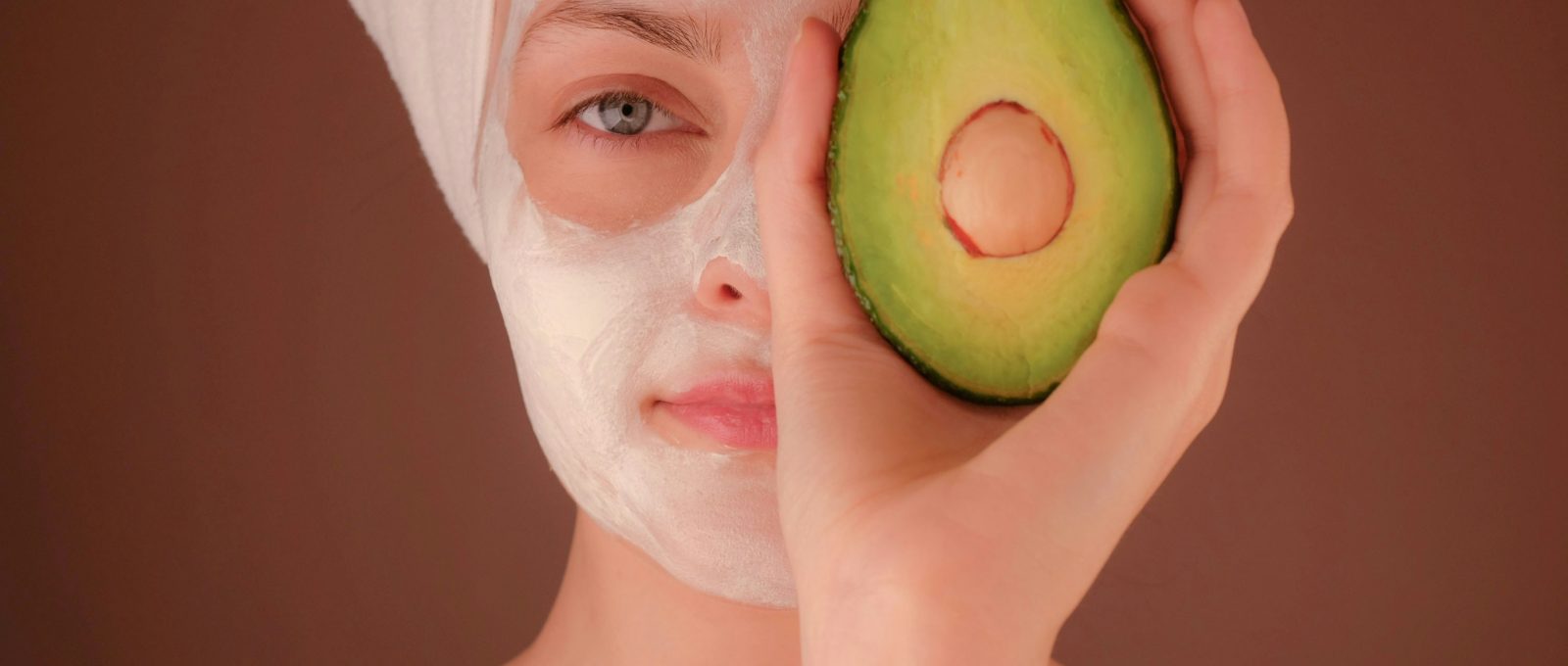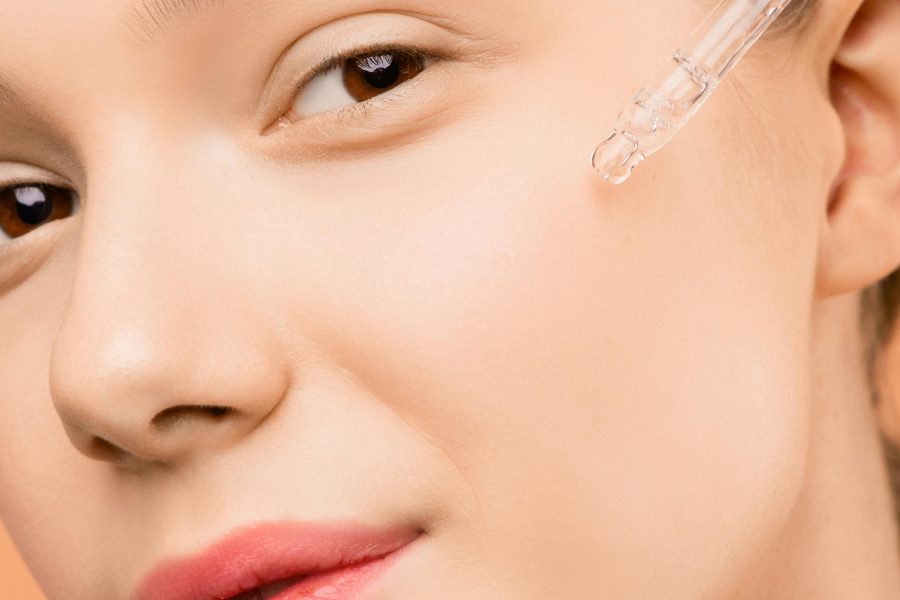Introduction
Welcome to your ultimate guide to building a skincare routine that fits you perfectly! Whether you’re a beginner trying to figure out where to start or you’re looking to refine your current practices, you’ve come to the right place. A great skincare routine is all about understanding what works for your skin’s unique needs and striking the right balance of products. So, let’s embark on this journey towards achieving healthy, glowing skin together!
Understanding Your Skin

Identifying Your Skin Type
The best way to embark on a proper skin care regimen is by knowing the category of your skin. Generally, skin types are classified into four major categories: oily, dry, normal/combination and sensitive skins. Oily skin type implies the overproduction of the facial sebum with the involvement of the skin’s shine and large pores. Skin becomes scaly, tight, and perhaps gets a faded look due to the lack of proper hydration. When it comes to combination skin, some areas of the skin are oily, while others are dry; usually, the T-zone is greasy, and the cheeks are dry. This type of skin gets easily provoked by things that do not affect other skin types and causes the skin to turn red or itchy or develop rashes. It is crucial to identify your skin type since this will help you to decide on the proper products and create a routine with the skin’s problem solving in mind.
Some frequent problems regarding the skin and how they can be solved
Everyone has their own type of skin and every skin type has specific problems and specific treatment. On this skin type, particularly emphasis should be given to mattifying the skin and avoiding the formation of pimples; one should use cosmetics that help to control the secretion of sebum but do not decrease the skin’s lipids. Dry skin needs moisture and a barrier; thus, ingredients such as hyaluronic acid and ceramides are effective. Therefore, users of combination skin should ask for lighter weight products on the T-zone and richer products on dry areas. One type of skin is sensitive skin which has to be treated with care as well as avoided the use of fragrance in the soap. Treating these worries appropriately will aid in the preservation of the skin’s well being and hfgfngtexture.
Building Your Skincare Routine
Cleansing
Cleansing is one of the initial processes that one is supposed to carry out in his/her skincare process. As a makeup remover, it cleanses the skins surface by wiping out the accumulated dirt, oils and impurities, and clearing the pores in order to allow the other products to work on the skin. For oily skin especially one with a big T-zone people should use gelly or foaming cleanser as this assist in eliminating excess oil. Cream or lotion cleansers are preferable for the dry and sensitive skin types because they include extra moisture and substantially less irritation. Gentle cleansing is done twice daily that is in the morning and at night to maintain skin cleanliness and reduce congestion.
Toning
Toners enhance the skins pH level and also correct skin pores in order to obtain a smoother skin surface. The toners used should be of oils controlling type for the people having oily and combination skin type they should look for the toners with salicylic acid. Face toners, especially those containing glycerin, rose water, or propylene glycol will do a good job for dry skin by moisturizing the face. Toner should ideally be used after washing the face but before applying the serums and or moisturizers for better effects.
Serums and Treatments
Serums and treatments refer to collectives of cosmetic products that are formulated highly concentrated to address specific skin issues. Of the younger skin, the tired and droopy skin or the dull skin, acne-prone skin, or the skin with pigmentation problems, there is a serum available for each of it. Hyaluronic acid works well for most skin type because it serves in hydrating the skin while Vitamin C usually works well in brightening the skin. It should be adopted after the skin toner but before moisturizer to allow the active ingredients to reach the deeper layers of the skin.
Moisturizing
Hydrating is critical to enhance the skin’s ability to hold water while maintaining the barrier function of facial skin irrespective of the skin type. Oily skinned people should avoid heavy and oily moisturizers and instead use a light, non-acnegenic moisturizer. Lotion-based creams can be applied to the skin that is easily prone to dryness and therefore need a product that will give it the required richness. One should always apply a moisturizer after applying serum to allow the skin to absorb the beneficial nutrients for the skin.
Sunscreen
It’s essential to wear sunscreen when you go out because the sun’s UV radiation is a well-known skin ager and cancer causer. It should be used in the morning each day as even when it is cloudy UV rays are present. Use a non-microplastic sunscreen with a rating of 50 that has at least an SPF of thirty. The individuals with the oily skin ought to use water-based or gel so that their skin does not get more oily and for dry skin creams would do.
Thus, knowing your skin type and applying an appropriate cleansing routine will allow to have healthy skin and, if necessary restore its function and glow.
Selection of Right Skin Care Products
In creating an appropriate skincare regimen, stress is placed on the choice of those unique products that will be effective for the skin Damen. How do we wade through the plethora of skincare products out there? The initial step is to analyze ingredients, knowing which can nourish skin and which to sidestep.
Ingredients to Look for
For the water retention and to keep the skin’s outermost barrier in check, look out for products that contain hyaluronic acid, glycerin, and ceramides. It warms up the shivering skin and grabs the water to keep it from evaporating. In the case of brightening and evening skin tone look for vitamin C, niacinamide and kojic acids as these work wonders even out skin tone and reduce hyperpigmentation to give skin that lovely glow. Again for the damaged skin, retinoids and peptides are compulsory as they help in the synthesis of collagen and can minimize wrinkle appearance.
Ingredients to Avoid
As good and necessary as these ingredients may be to the skin, some are destructive. Minimize your usage of the severe sulfates, parabens, and phthalates especially if you are on sensitive skin. These can remove the skin natural oils and change the skin pH which causes dryness and skin sensitivity. Moreover, phthalates are also found to be commonly used in the products as synthetic fragrance and colorant which potent to cause various types of allergic reactions therefore should be avoided.
Recommendations according to the Skin Type
If you have combination oily and acne-prone skin, then better go for light, non-acnegenic/milk products that include salicylic acid and benzoyl Peroxide components for reduce adding extra oil and clear up pimples. For dry skin, it is recommended to use moisturizers that are denser and with shea butter or oil included into the product. The organization should recommend the product with aloe vera or chamomile for those who have sensitive skins because they are mild and non-irritating. Obviously one has to pay attention to the labels and sometimes, applying a small amount of the new products on a less noticeable area of the skin – a patch test – may be helpful.
Additional Skincare Tips
There are dos and don’ts of taking care of your skin, which when followed can help in the improvement of your complexion.
Incorporating Exfoliation
Peeling is a mandatory stage of any care, and it depends on the type of skin, which of the two options mentioned above is better to use. It assists in scrubbing the skin and get rid of the skin that has peeled of which acumulates on the surface of the skin leading to skin t/people having lifeless skin. But there is one thing that must be stressed, and it is the proper selection of the type of peeling. Examples are AHAs and BHAs, chemically they work as exfoliants for all skin types and causes the dead skin to dissolve. Their major benefit is that they are helpful for the coarse skin types; however, they are applied rarely and in a limited quantity because of the possibility of skin injuring.
Importance of Hydration
Drinking water is one of the crucial necessities for having healthy and glowing skin that is free from wrinkles. No matter your skin type and the nature of your skin, it will always benefit from a good moisturizer. Alternatively, if you want to turn up the hydration, it is also advisable to apply a serum before your daily moisturizer especially during ‘winter’ or in arid regions. External skin has its own requirements: internal hydration is needed as well; one should drink a lot of water during the dropdown day as the skin requires it to get rid of toxins.
The Diet Factor in the Care of the Skin
The condition of your skin is related to the diet regime that you take in directly. The type of nutrients that is shown to help nourish the skin include antioxidant, healthy fats and omega 3 fatty acid foods. Take avocados, walnuts, salmon, and lots of fruits and vegetables for better improvement of your adult heart health. Reducing sugar and refined carbohydrates is beneficial in fighting acne and wrinkles in accordance with dermatologists’ advice. Furthermore, the provision of an incorporated strategy with addressing nutrition also has its impact on the general skin’s brightness and health.
Just as a reminder, knowing your skin type and the corresponding demands it has on the products you apply is the groundwork of any skin care regimen. New readers should employ these strong suggestions and then adapt them according to the dynamic skin condition in your life, age, or due to environment alteration.
Customizing Your Skincare Routine
Coming up with a skincare routine that is fitting for your skin can be revolutionary for your skin type and texture. Customization means that you need to know your skin type which may be oily, dry, combination, normal, and sensitive skin. Besides understanding the skin type, take any issues including acne, aging, melanin concentration, or skin redness.
Begin with the core steps of any good skincare regimen: they include cleansing, toning, treating and moisturizing of the skin. Every step should be appropriate for your skin type. For instance, if you have oily skin, use a gel kind of cleanser that controls oil build-up while at the same time not dominating the skin’s natural oils. Dry skin works best with a cream base cleanser and also adding a toner to your skin helps a lot.
Nearness to festive seasons should also affect a person’s schedule. During the summer, you might want to use lotions or serums because oils are not ideal for the summer, and skin feels weighed down by creams. As for the colder season, it might be advised to turn to the richer products as well as possibly adding some nourishing oils or some sort of more moisturizing cream to guard against extreme cold.
Last but not least, it is recommended that you pay certain concern to the ingredients of the mask for the skin. One should look for active ingredients such as hyaluronic acid to moisturizing the skin, Salicylic acid for acne-prone skin and niacinamide for skin redness or pigmentation. When choosing products for the skin, do not use items containing such ingredients as artificial fragrances or alcohol if the skin is sensitive. Adjusting your product choice according to these factors will enable you to take an even better care of your skin and establish more effective skin care routine.
Troubleshooting Common Skincare Issue

Regardless of how carefully you have arranged to proceed, there is always a likelihood that you are faced with specific skin problems. Here are a few common problems and tips to help you address them:Here are a few common problems and tips to help you address them:
Acne Breakouts
Acne is one of the skin conditions that can be prevented by making slight changes in ones diet and regimen. Choose a cleaner that can effectively get rid of dirt and other oils while at the same time does not cause skin irritation. Drug contains benzoyl peroxide topical, salicylic acid, topical, and tea tree oil can treat acne. Also, replacing ordinary cream with non comedogenic moisturizer and washing face with scrub at least two times a week assists in preventing clogged pores. One should also not touch the face during the day and it is recommended that the phone or pillowcases be cleaned often because they transfer bacteria that cause acne.
Dryness
Itchy skin especially the one that is characterized by dryness needs a program that offers an increased likelihood of getting moisture on the skin. Begin the regimen with cleansing with water-based formula and then apply the toner or essence which may be oil based. Choose lotions containing ceramides, glycerin or hyaluronic acid – these are ingredients that are helpful in drawing water to the skin’s surface. Use of an occlusive agent such as a facial oil or a petrolatum based product at night also helps to reduce on the loss of moisture. Other ways that can be adopted to enhance the results obtained are to take more water and use a humidifier if the surrounding environment is very dry.
Sensitivity
The skin that is sensitive requires delicate treatment and the products that contain the least amount of chemicals. Select products that carry labels stating that the merchandise is for sensitive skin–without alcohol, scent, and particular types of preservative. For any new product, which you intend to begin using, it is wise to do a patch test by applying a little amount on your inner arm to see if you have an adverse reaction. Avoid using complicated and stimulating components such as lemon, garlic, and pepper that affect uterine contractions directly. Other measures that can also help in avoiding the irritation include; avoiding sun exposure and hot water among other things.
Conclusion
Creating a personalized skincare routine is crucial for maintaining healthy, radiant skin throughout your life. Remember to tailor your regimen based on your skin type, lifestyle, and seasonal changes. While it might seem challenging at first, consistency is key. With persistence and the right products, your skin can look its best. Don’t hesitate to consult with dermatologists or skincare professionals to refine your routine further. Here’s to glowing, vibrant skin – because you deserve to shine!




1 Comment